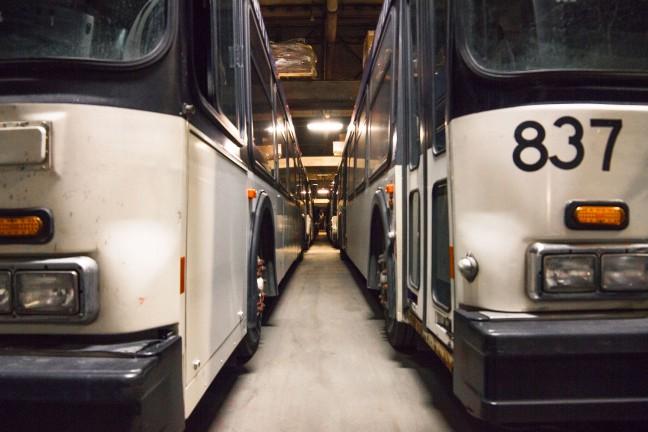University of Wisconsin researchers are testing the transition of self-driving vehicles onto Wisconsin roads and are working on a self-driving mini-bus that may be demonstrated at UW this fall.
David Noyce, University of Wisconsin Traffic Operations and Safety Laboratory director, and his colleagues have been working on how UW can advance autonomous vehicle technology. Noyce said they are working hard on bringing an automated mini-bus to campus that may be presented in a one-day demonstration sometime this fall, but it is still in the works.
Noyce, along with Rep. Adam Neylon, R-Pewaukee and a variety of other experts, are part of the Steering Committee to discuss the future of autonomous and connected mobiles and the preparation needed to bring it to Wisconsin roads. The committee was created through an executive order by Gov. Scott Walker.
Noyce said there are various projections on the timeline for when cars on the road will be fully autonomous. Wisconsin, however, has the potential to be a leader in research, implementation and ultimately usage of AV technology.
In about six to eight months, the steering committee will make its recommendations to the state Legislature, Neylon said. The bill will likely be introduced in the next legislative session.
“We’d like to have legislation that comes out of this to clear hurdles that allow for self-driving vehicles and connected vehicles to operate on Wisconsin roadways,” Neylon said.
Traffic deaths for April low, UW experts say it’s not enough
Currently, there is a lot of ongoing preparation to see what a roadway system with both regular and autonomous vehicles will look like, Noyce said. He believes it’s important to look at the transition of autonomous mobiles into society through a research standpoint and let people try it, get used to it and explore it.
One of the biggest concerns people have is the transition period when both cars and autonomous vehicles are on the road, Noyce said. People are also concerned for how AV will react in different types of weather conditions, such as slippery roads and black ice.
Neylon said one of the advantages Wisconsin has is being able to test AV in snow and ice. This advantage has the possibility of making Wisconsin a “leader” in the industry. Wisconsin is also one of 10 states in the country that received approval to test AV.
“There are a lot of advantages in Wisconsin, from our talented and skilled workforce, the UW System and our climate and weather patterns,” Neylon said.
Jon Riehl, a transportation systems engineer at UW Traffic Operations and Safety Lab, said another concern is privacy issues with data collection and cybersecurity issues.
Despite the concerns, all three experts said one of the main benefits of AV will be safety. More than 90 percent of traffic related fatalities are the result of human error, Neylon said.
“Once you take human error out of the equation it will save lives, whether that’s from drunk driving, distracted driving or any of the things that go into human error,” Neylon said.
Riehl said there is huge potential to decrease drunk driving fatalities with AV, especially in rural areas. He believes AV will be a net positive for most people and for society. The switch over to AV is inevitable, whether people like it or not, he said.
UW paves way for research on driverless vehicles with testing grounds
Riehl predicts in 2025 there will be a number of different almost fully autonomous vehicles being tested. There will be the 10 to 20 year period of vehicle turnover, and by 2075 there will be fully autonomous vehicles on the road, Riehl projected.
“In the end [AV are] coming, we need to prepare in a way that helps society and doesn’t hurt it,” Riehl said.

















